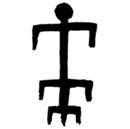
- Seloua Luste Boulbina – L’Afrique et ses fantômes
- Géraldine Faladé – Turbulentes !
- Rama Salla Dieng – Féminismes Africains
- Amzat-Boukari-Yabara – Walter-Rodney, un historien engagé
- Séverine Kodjo-Grandvaux – Philosophies Africaines
- Théophile Obenga – L’égyptien pharaonique: une langue négro-africaine
- Jean-Luc Aka-Evy – Le cri de Picasso
- V.Y. Mudimbe – L’odeur du père
L’Afrique et ses fantômes
Ecrire l’après
– Non-Fiction – Philosophy-
|
FRENCH VOICES AWARD 2018 Summary: « Wondering how best to introduce a reflection on the decolonial becoming, it seemed to me that testimony was perhaps the best way to begin. What people experience, what they carry within themselves and between one another, though often imperceptible, is nonetheless not inaccessible. Colonial disturbances, postcolonial outcomes, and decolonial becomings are not merely historical events or political phenomena. They are also disruptions or improvements in communication—within oneself and with others. » Seloua Luste Boulbina begins her text with these words, which Achille Mbembe comments on in the preface as follows: |
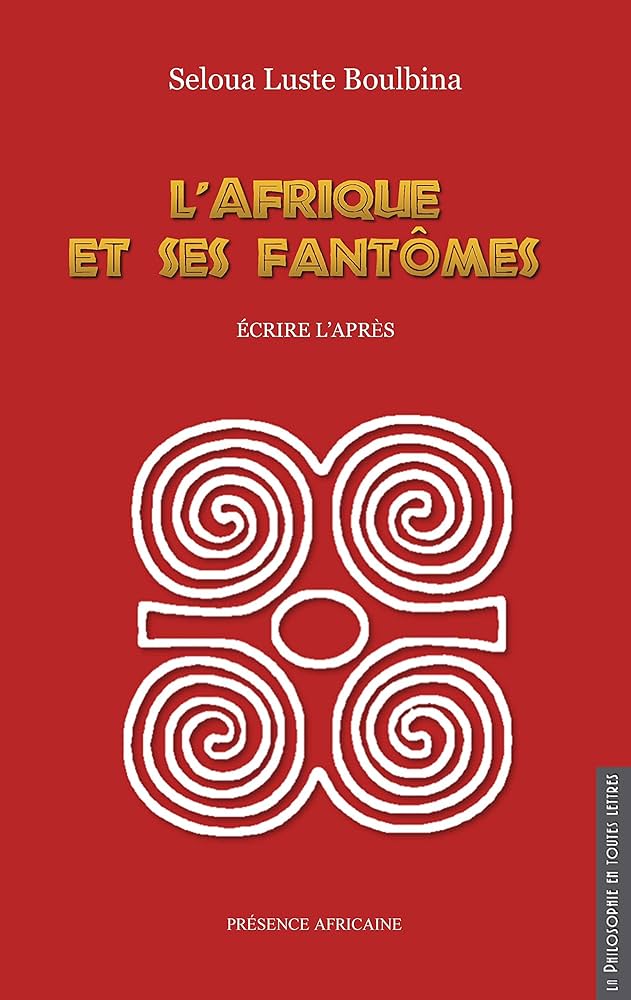 |
| Publication: Présence Africaine, 2015 Language: French Rights: World rights to Présence Africaine except English (World) to Indiana University Press. Genre: Non-Fiction, Philosophy Extent: 140 p. Bio: Seloua Luste Boulbina is a Professor of philosophy, director of the program « The Decolonization of Knowledge » at the International College of Philosophy, and an associate researcher qualified to supervise doctoral research at the Laboratory of Social and Political Change at Paris Diderot University. Her work focuses on colonial and postcolonial issues in their political and cultural dimensions. Link to the book on Présence Africaine: Here Rights inquiries: Here |
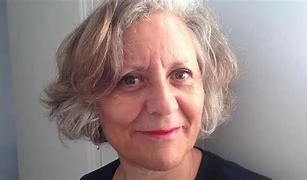
© |
Géraldine Faladé, Turbulentes !
Des africaines en avance sur leur temps…
– Non-Fiction – Portraits –
|
Summary: Each in her field was the first to exercise a profession hitherto reserved for men: magistrate, doctor, teacher, mayor, artist… In a mainly male-dominated world, they have shattered many prejudices and endured many criticisms. This book aims to revive the memory of these determined and courageous pioneers, who were incredibly ahead of their society in their time. |
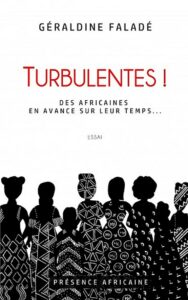 |
| Publication: Présence Africaine, 2020 Language: French Rights: World rights to Présence Africaine Genre: Non-Fiction, portraits Extent: 272 p. Bio: Born in Porto-Novo in 1935, Géraldine Faladé, a journalist associated with the creation of La Vie africaine, worked at the Office de coopération radiophonique, the ancestor of Radio France Internationale, and contributed to the development of the press within of Chad’s Ministry of Information. She currently lives between Paris and Cotonou. Author of a collection of tales, Regards et parles du soir (Cauris), collected on the advice of her sister, the pediatrician and psychoanalyst Solange Faladé, Géraldine takes up the pen again here to bear witness to the feminist struggles of the first hour. Link to the book on Présence Africaine: Here Rights inquiries: Here |
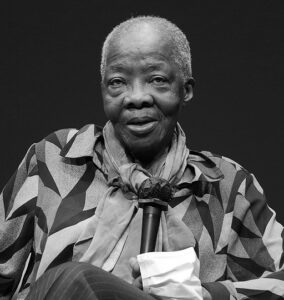 © © |
Rama Salla Dieng, Féminismes Africains
Une histoire décoloniale
– Non-Fiction – Conversations & Activism –
|
Summary: A serie of conversations with twenty activists and feminist academics, mostly from Africa and the diaspora. These dialogues aim to shift knowledge production on feminism in Africa from a decolonial perspective, and focus on feminist practices, philosophies, aspirations, challenges and joys. It’s a controversial question: do feminist, anti-racist and LGBTQI+ movements fall under the general scope of universalism? Or should they be broken down into smaller sub-movements to better address the intersectional nature of oppression? In her latest book « African Feminisms », University of Edinburgh professor Rama Salla Dieng considers what it means to be a feminist specifically in Africa, through a series of interviews with activists across the continent. The debate on feminisms in Africa has not finished shaking up the comfort of the patriarchy. All over the African continent and the diaspora, people, in addition to theorizing their definition of feminism make more of it than a one-off fight, it is a way of life. It is a question of breaking with this old preconception that African women are ignorant of feminist struggles. Rama Salla Dieng is one such person who is interested in these struggles, documenting and popularizing them in several languages and on different platforms. In this book, she conducts a series of interviews and conversations, at the heart of which various feminist and political experiences are explored at length. Rama Salla Dieng returned to the motivations for this series and the lessons learnt from it. We also learn about parenting during the Covid-19 pandemic, the urgency of reviewing the imposition of gendered characteristics, a possible handling of feminist issues in a socialist political system, the parameters to take into account for the effectiveness of the achievements of women’s rights, the much-needed politicization of African youth and the world after Covid 19. |
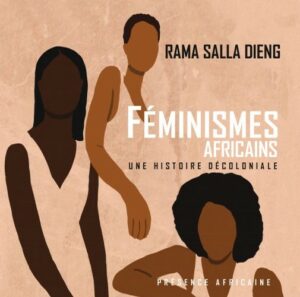 |
| Publication: Présence Africaine, 2021 Language: French Rights: World rights to Présence Africaine Genre: Non-Fiction, conversations Extent: 224 p. Bio: Rama Salla Dieng is a Lecturer in African Studies and International Development and Director of the Africa and International Development Master’s Program at the University of Edinburgh in Scotland. Her research focuses mainly on the political economy of investments in Senegalese horticulture and Senegal’s development policies, Gender and Development, as well as feminism in Africa. Link to the book on Présence Africaine: Here Rights inquiries: Here |
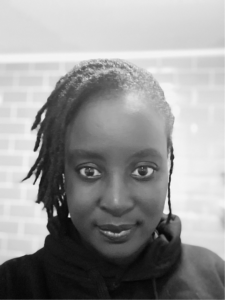 © Rama Salla Dieng © Rama Salla Dieng |
|
Amzat Boukari-Yabara, Walter Rodney
Un historien engagé (1942-1980)
– Non-Fiction – Biography –
|
Summary: This book analyzes the life and work of Guyanese historian and politician Walter Rodney (1942-1980), his formative years, his influences, his ideology and his political action. Although Rodney has been the subject of half a dozen monographs in English, this work is the first work in French devoted to this English-speaking historian. The book is aimed at both an academic audience interested in African worlds and a « militant » audience interested in development issues and social struggles. |
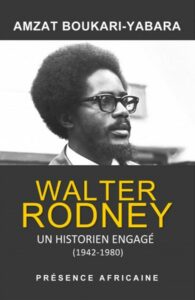 |
|
Publication: Présence Africaine, 2018 Bio: Amzat Boukari-Yabara was born in Cotonou (Benin) in 1981. He holds a PhD in African history and civilizations from the Ecole des Hautes Etudes en Sciences Sociales (EHESS) and speaks at numerous scientific conferences. He is currently a researcher with the Interuniversity Group for Research and Studies on African Societies (GIERSA), affiliated with the Department of Anthropology at the University of Montreal. Link to the book on Présence Africaine: Here Rights inquiries: Here |
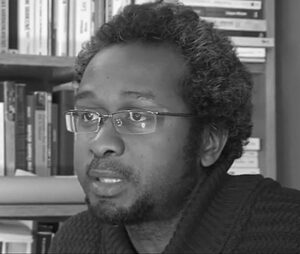 © Panafricain medias (creative Commons) © Panafricain medias (creative Commons) |
Séverine Kodjo-Grandvaux, Philosophies Africaines
– Non-Fiction – Philosophy –
|
Summary: It is high time for a reappraisal of African philosophy. But to appreciate something you first need to get to know it. According to Séverine Kodjo-Grandvaux, knowledge about African philosophies can help us with contemporary crises. The ecological crisis, the financial crisis, the democratic crisis, they all have a basis in our modernity thinking. The idea that we humans are superior to others and that there is a gap between humans and nature. In African philosophies, community and connectedness come first. This ground-breaking essay highlights themes and issues that mobilize contemporary African philosophers both in French-speaking and in English-speaking areas, epitomizing an unique opportunity to understand that philosophy is not locked-up into culture or language, but encounter and translation. The author invites us to discover why African philosophy is first and foremost a relational philosophy, beyond material and intellectual boundaries. With an introduction by Professor Souleymane Bachir Diagne. Award: Prix Louis Marin for Overseas Sciences. |
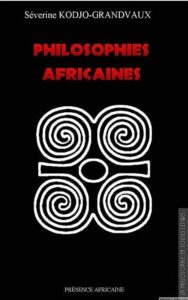 |
| Publication: Présence Africaine, 2013 Language: French Rights: World rights to Présence Africaine Genre: Philosophy Extent: 304 p. Sold: English, Portuguese (Brazil), Turkish, Arabic Bio: Séverine Kodjo-Grandvaux is a Philosopher and Associate Researcher at the Paris 8 Faculty’s department for Studies and Research on Contemporary Logic and Philosophy. She is also a journalist working for several Media: Le Monde, Jeune Afrique… Link to the book on Présence Africaine: Here Rights inquiries: Here |
 © Séverine Kodjo-Grandvaux © Séverine Kodjo-Grandvaux |
|
|
|
|
|
|
|
|
Théophile Obenga, L’égyptien pharaonique: une langue négro-africaine
– Non-Fiction – Linguistic –
|
Summary: Egyptien, Dagara, Yoruba, Baule, Dogon, Langues du Bahr el-Ghazal: since the Cairo symposium in 1974 and based on the foundational work of Cheikh Anta Diop, Pharaonic Egyptian, an ancient Nilotic African language, and other modern Negro-African languages, point to a common pre-dialectal ancestor, the demonstration of which is compelling. A study of historical and comparative linguistics on the relationships between Pharaonic Egyptian and several African languages. This technical work on historical and comparative linguistics is composed of studies that have been published since 1976, many of which have become difficult to find, as well as recent studies presented here for the first time. The method of historical and comparative linguistics is clearly explained and then applied to the history of African language. Baoulé from Côte d’Ivoire, Dogon from Mali, Dagara from Burkina Faso, Yoruba from Nigeria, Nilo-Saharan languages from Bahr el-Ghazal in Southern Sudan, Pharaonic Egyptian, and Coptic provide the linguistic evidence. Akkadian and Assyrian, being Semitic languages, are also employed to enhance the contrasting analyses of detailed paradigms and structures. The study is preceded by an exposition on the methodological principles of historical linguistics. The work is illustrated with maps, photos of objects, and numerous drawings of hieroglyphs. The didactic dimension of the work adds significant value and originality to this book: a work of significant value, benefiting both African linguistics and general linguistics. |
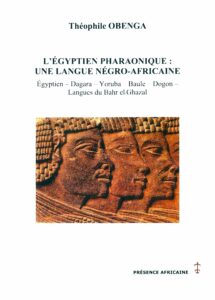 |
| Publication: Présence Africaine, 2010 Language: French Rights: World rights to Présence Africaine Genre: Linguistic Extent: 139 p. |
Bio: Théophile Mwené Ndzalé Obenga, born on February 2, 1936, in Mbaya (Republic of Congo), is an Egyptologist, linguist, and historian. Alongside Cheikh Anta Diop, he advocates for a recentered vision of African black history, focusing on the concerns of black African researchers and intellectuals who are keen to revisit their heritage (Afrocentrism).
Link to the book on Présence Africaine: Here
Rights inquiries: Here
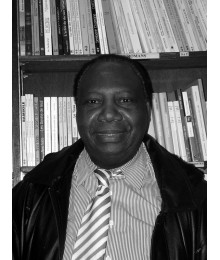
© Présence Africaine
Jean-Luc Aka-Evy – Le cri de Picasso : les origines « nègres » de la modernité
– Non-Fiction – History of Art –
|
Summary: Le cri de Picasso examines the driving force that African classical art was in the aesthetic revolution of the 20th century. At a time when Africa is fighting to recover its heritage, it is indeed important to gauge the creative power that the objects within it carried with them on their European and American odyssey, thereby imprinting our artistic modernity with the African essence that characterizes it. This analysis is carried out with erudition in Le cri de Picasso, while remaining throughout a celebration of the universal language of art. Forword: Pr. Souleymane Bachir Diagne Postcript: Pr. Jean-Loup Amselle |
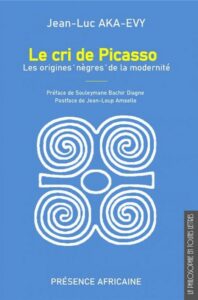 |
| Publication: Présence Africaine, 2023 Language: French Rights: World rights to Présence Africaine Genre: History of Art Extent: 728 p. Bio: Professor and full-time faculty member at the Universities, Jean-Luc Aka-Evy is a philosopher and art historian. He taught for over 30 years in the Department of Philosophy at the Faculty of Letters at the University of Brazzaville. He received the « Papyrus of High Scientific Distinction – Master of African Traditions and Sciences » award from CERDOTOLA (Cameroon). A member of the African Academy of Religious Sciences, Social Sciences, and Humanities in Dakar, former Director-General of Culture and Arts in Congo, and former Commissioner-General of FESPAM, Mr. Aka-Evy currently serves as the ambassador of Congo to Senegal. Link to the book on Présence Africaine: Here Rights inquiries: Here |
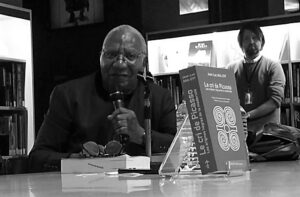
© (creative commons) |
V.Y. Mudimbe – L’odeur du père
– Non-Fiction – Philosophy –
|
Summary: In The Scent of the Father, Mudimbe set himself the task of shedding light on the complex links that bind Africa to the West and determine the exercise of thought and knowledge practices, particularly in relation to the social sciences. For Africa to escape the West, says Mudimbe, it must become aware of what remains Western in the very concepts and forms of thought that allow it to think against the West, and be alert to the possibility that the recourse against the West might be just another ruse that the West uses for its own ends. Africa must elucidate the modalities of the integration of Africans into the myths of the West, while at the same time aiming at the readaptation of the African psyche in the wake of the violence it has suffered. |
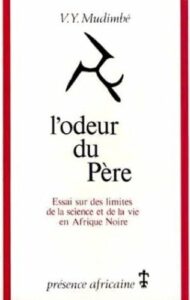 |
| Publication: Présence Africaine, 1982 Language: French Rights: World rights to Présence Africaine Genre: Philosophy Extent: 208 p. Bio: Valentin-Yves Mudimbe is a Congolese philosopher, novelist, poet, essayist, and academic, widely considered to be one of the most important African thinkers of his generation. The ideas and arguments he has developed in his writings since the 1970s, including The Invention of Africa, have been hugely influential across many disciplines and established his reputation as one of the essential postcolonial thinkers of our time. Link to the book on Présence Africaine: Here Rights inquiries: Here |
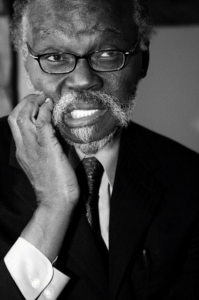
© Jelle Goossens (certains droits réservés) |
|
